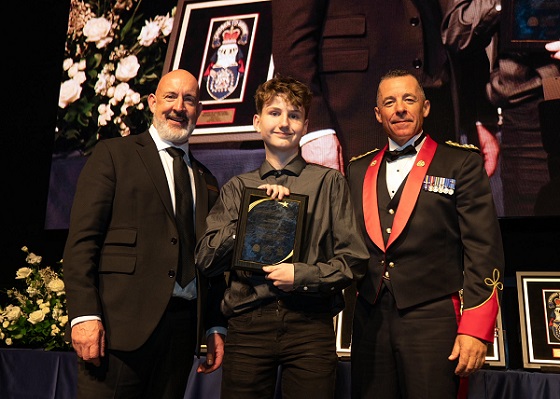Education
Renaming schools in Ontario—a waste of time and money

From the Fraser Institute
It appears that Toronto District School Board (TDSB) trustees have too much time on their hands. That’s the only logical explanation for their bizarre plan to rename three TDSB schools, which bear the names of Canada’s first prime minister, Sir John A. Macdonald, British politician Henry Dundas and Egerton Ryerson, founder of public education in Ontario.
According to a new TDSB report, the schools must be renamed because of the “potential impact that these names may have on students and staff based on colonial history, anti-indigenous racism, and their connection to systems of oppression.”
Now, it’s true that each of these men did things that fall short of 21st century standards (as did most 19th century politicians). However, they also made many positive contributions. Canada probably wouldn’t exist if John A. Macdonald hadn’t been involved in the constitutional conferences that led to Confederation. More than anyone else, he skillfully bridged the divide between British Protestants and French Catholics. But for a variety of assigned sins typical to a politician of his era, he must be cancelled.
Henry Dundas supported William Wilberforce’s efforts to abolish slavery throughout the British Empire, but believed a more moderate approach had a higher chance of success. As a result, he added the word “gradual” to Wilberforce’s abolition motion—an unforgivable offense according to today’s critics—even though the motion passed with a vote of 230-85 in the British House of Commons.
Egerton Ryerson played a key role in the founding of Ontario’s public education system and strongly pushed for free schools. He recognized the importance of providing an education to students from disadvantaged backgrounds, something that was unlikely to happen if parents couldn’t afford to send their children to school. And while Ryerson was not directly involved in creating Canada’s residential school system, his advocacy for a school system for Indigenous students has drawn the wrath of critics today.
Knowing these facts from centuries ago, it strains credulity that these three names would so traumatize students and staff that they must be scrubbed from school buildings. Despite their flaws, Macdonald, Dundas and Ryerson have achievements worth remembering. Instead of trying to erase Canadian history, the TDSB should educate students about it.
Unfortunately, that’s hard to do when Ontario teachers are given vague and confusing curriculum guides with limited Canadian history content. Instead of a content-rich approach that builds knowledge sequentially from year-to-year, Ontario’s curriculum guides focus on broad themes such as “cooperation and conflict” and jump from one historical era to another. No wonder there is such widespread ignorance about Canadian history.
On a more practical level, renaming schools costs money. Officials with the nearby Thames Valley District School Board, which is undergoing its own renaming process, estimate it costs at least $30,000 to $40,000 to rename a school. This is money that could be spent better on buying textbooks and providing other academic resources to students. And this price tag excludes the huge opportunity cost of the renaming process. It takes considerable staff time to create naming committees, conduct historical research, survey public opinion and write reports. Time spent on the school renaming process is time not being spent on more important educational initiatives.
Interestingly, the TDSB report that recommends renaming these three schools has six authors (all TDSB employees) with job titles ranging from “Associate Director, Learning Transformation and Equity” to “Associate Director, Modernization and Strategic Resource Alignment.” The word salad in these job titles tells us everything we need to know about the make-work nature of these positions. One wonders how many “Learning Transformation and Equity” directors the TDSB would need if it dropped its obsession with woke ideology and focused instead on academic basics. Given the significant decline in Ontario’s reading and math scores over the last 20 years, TDSB trustees—and trustees in other Ontario school boards—would do well to reexamine their priorities.
Egerton Ryerson probably never dreamed that the public school system he helped create would veer so far from its original course. Before rushing to scrub the names of Ryerson and his colleagues from school buildings, TDSB trustees should take a close look at what’s happening inside those buildings.
In the end, the quality of education students receive inside a school is much more important than the name on the building. Too bad TDSB trustees don’t realize that.
Red Deer
Red Deer Student honoured with Chief Youth Courage Award

When you meet Brayden Chenier, a Grade 8 student at GH Dawe School, it’s clear why he’s been chosen to represent youth across Alberta. Brayden is the proud recipient of the Integrated School Support Program Provincial (ISSP) Chief Youth Courage Award, presented by the Calgary Police Youth Foundation, in recognition of his resilience, leadership and commitment to his community.
The award celebrates students who demonstrate courage and dedication to becoming a responsible and caring citizen, especially within a diverse school and community, and was presented earlier this spring at the Calgary Police Awards Gala. As part of the honour, Brayden will now serve as a youth ambassador, helping to raise awareness about child and youth crime prevention, education, and intervention programs across the province.
“It’s pretty surreal that I will be all over the province for a year,” said Brayden. “I am looking forward to helping out in the community.”
Brayden has been part of the ISSP program through GH Dawe School since 2023 and has benefited greatly from the support offered.
With the support of the mental health professional, Brayden has been able to successfully navigate a variety of challenges in his life including coming to terms with his disability and navigating a tragic loss in his life.
Born with clubfoot, Brayden has never let his physical disability stand in his way. He is an avid athlete in a number of sports including hockey, basketball, golf, track, volleyball and soccer. His goal is working towards becoming an athlete in the Paralympics.
Brayden was nominated by GH Dawe School Counsellor Amy Johansson, who described him as a compassionate, kind, hardworking, and honest person who is driven and motivated to be his very best at all that he attempts.
She added that within the GH Dawe School community, Brayden is a highly respected citizen by all students and staff. “He is highly committed to sports connected to our school, as well as sports outside of our school community. Brayden works diligently at his academics. And is so very helpful and caring, always. Brayden works to overcome a list of things that he will not allow to hold him back.”
GH Dawe School is part of Alberta’s Integrated School Support Program – a child wellness initiative aimed at improving academic performance and the overall well-being of students. The program supports schools like GH Dawe with services to meet the diverse needs of students and families.
As he takes on his role as a provincial ambassador, Brayden continues to be a role model for his peers and a reminder of the power of perseverance and community support.
Alberta
Too Graphic For A Press Conference But Fine For Kids In School?

From the Frontier Centre for Public Policy
By Lee Harding
Alberta moves to remove books after disturbing content, too graphic for media to view, was found in schools
Should elementary school children be given books to read with harsh insults against minorities, depictions of oral sex, and other disturbingly graphic and explicit content?
Such books have been in some Alberta elementary schools for a while, and in many school libraries across Canada.
In late May, the Alberta government announced it would establish new guidelines regarding age-appropriate materials in its schools. A government press release included quotes with disturbing content, but at a press conference, Education Minister Demetrios Nicolaides said some book illustrations could not be shown.
“I would show these images to all of you here and to the media, but they are too graphic for a live-stream media event. These examples … illustrate the kind of content that raises concerns amongst parents,” Nicolaides said.
You don’t say? This seems like the sort of stuff no one, except a pervert in a park, would dream of showing to a child. Ironically, the inability to publicize such graphic materials is part of the reason they have been shown to children with little public awareness.
Citizens’ group Action4Canada (A4C) has claimed its activism played a pivotal role in the Alberta decision. The organization has compiled a 36-page document online with examples of objectionable content in Canadian schools. Among the worst is Identical by Ellen Hopkins, which includes graphic descriptions of a little girl being molested by her father.
A4C founder Tanya Gaw has repeatedly tried to raise concerns about objectionable books with school boards, often without success. In some cases, she isn’t even allowed on the agenda if she states her topic upfront. When she is permitted to speak, she’s frequently cut off as soon as she begins quoting from the books, preventing the content from entering the public record.
In January 2023, Gaw made an online presentation to a school board in Mission, B.C. regarding materials in their schools. As she began to screenshare what was there, some board members objected, saying such permission had not been given in advance.
One month later, the board banned Action4Canada from making any further presentations. In later media interviews, the board chair justified the decision by saying Gaw’s PowerPoint contained some graphic and “inappropriate images.”
Exactly, and that is the problem. A recent check showed Mission’s school division only removed four of 15 books A4C objected to. Gaw is just glad “Identical” is one of them.
Pierre Barns, a father from Abbotsford, B.C., made it his mission to notify school boards across Canada what was on their school shelves. An online search was all it took to confirm. A “reply all” from a board member at the Halton School District in Ontario was most ironic.
“I am concerned. This individual has included links to publications and videos which may contain illegal content,” she wrote.
“I’m not sure how to investigate the content of the email safely. Would you please advise us whether or not this person ought to be reported to police? Is there some action we should take?”
There probably was action they should have taken, such as removing the books, but that never happened. Later, they defended a biologically male teacher in their school division who made international headlines by wearing large prosthetic breasts to school.
The Alberta government has committed to conducting public consultations before implementing new policies. It’s a good time for parents and citizens there and in other provinces to speak up. A young mind is a terrible thing to corrupt, but unfortunately, some schools are part of this corrosive effort.
Lee Harding is a research fellow with the Frontier Centre for Public Policy.
-

 National2 days ago
National2 days agoCarney promotes MP instrumental in freezing Freedom Convoy donors’ bank accounts
-

 Business2 days ago
Business2 days agoThe carbon tax’s last stand – and what comes after
-

 conflict1 day ago
conflict1 day agoIran nuclear talks were ‘coordinated deception’ between US and Israel: report
-

 illegal immigration2 days ago
illegal immigration2 days agoLA protests continue as judge pulls back CA National Guard ahead of ‘No Kings Day’
-

 conflict2 days ago
conflict2 days agoIsrael strikes Iran, targeting nuclear sites; U.S. not involved in attack
-

 International1 day ago
International1 day agoIsrael’s Decapitation Strike on Iran Reverberates Across Global Flashpoints
-

 Alberta1 day ago
Alberta1 day agoPunishing Alberta Oil Production: The Divisive Effect of Policies For Carney’s “Decarbonized Oil”
-

 Energy1 day ago
Energy1 day agoCanada is no energy superpower



